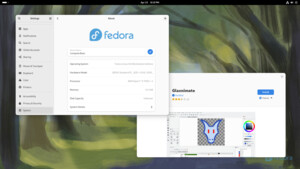brukernavn
Cadet 2nd Year
- Registriert
- Okt. 2016
- Beiträge
- 30
Intel und die FreeBSD Foundation haben in der kürzlich stattgefundenen AsiaBSDCon 2017 eine engere Zusammenarbeit angekündigt (betrifft hauptsächlich Server und Embedded Bereich, dafür dort aber umfassend). Intel hat zudem noch eine Spende in der Höhe von 250.000 Dollar getätigt.
http://www.pro-linux.de/news/1/24553/intel-verstärkt-zusammenarbeit-mit-freebsd.html
https://www.heise.de/newsticker/meldung/Intel-verstaerkt-FreeBSD-Engagement-3653754.html
Imad Sousou, Vice President und General Director von Intels Open Source Center:
https://01.org/blogs/imad/2017/intel-increases-support-freebsd-project
Auch interessant im Hinblick dessen das bei der letzten Kündigungswelle bei Intel auch ein Haufen Linux-Entwickler dabei waren. Das Linux-Urgestein Dirk Hohndel hatte ja bereits letzten Sommer den Hut genommen.
http://www.pro-linux.de/news/1/24553/intel-verstärkt-zusammenarbeit-mit-freebsd.html
https://www.heise.de/newsticker/meldung/Intel-verstaerkt-FreeBSD-Engagement-3653754.html
Imad Sousou, Vice President und General Director von Intels Open Source Center:
For more than 30 years, the FreeBSD Project community has developed and provided updates to a critical open source operating system that powers servers, desktops, and embedded platforms. With its advanced networking, security, and storage features, FreeBSD has become the OS of choice for embedded devices and appliances using Intel networking and storage technologies. We have received important feedback from customers that they need broader and timelier support of FreeBSD on Intel platforms.
Starting today, Intel is more actively engaging with the FreeBSD Foundation and the FreeBSD Project. We will work closely with the FreeBSD Foundation to ensure the drivers, tools, and applications needed on Intel® SSD-based storage appliances are available to the community. This collaboration will also provide timely support for future Intel® 3D XPoint™ products.
Intel’s engagement with the FreeBSD Foundation is another example of our commitment to ensuring we support a broad range of operating systems on our platforms in both the commercial sector and the open source community. We look forward to growing our shared success with the FreeBSD community.
https://01.org/blogs/imad/2017/intel-increases-support-freebsd-project
Auch interessant im Hinblick dessen das bei der letzten Kündigungswelle bei Intel auch ein Haufen Linux-Entwickler dabei waren. Das Linux-Urgestein Dirk Hohndel hatte ja bereits letzten Sommer den Hut genommen.



